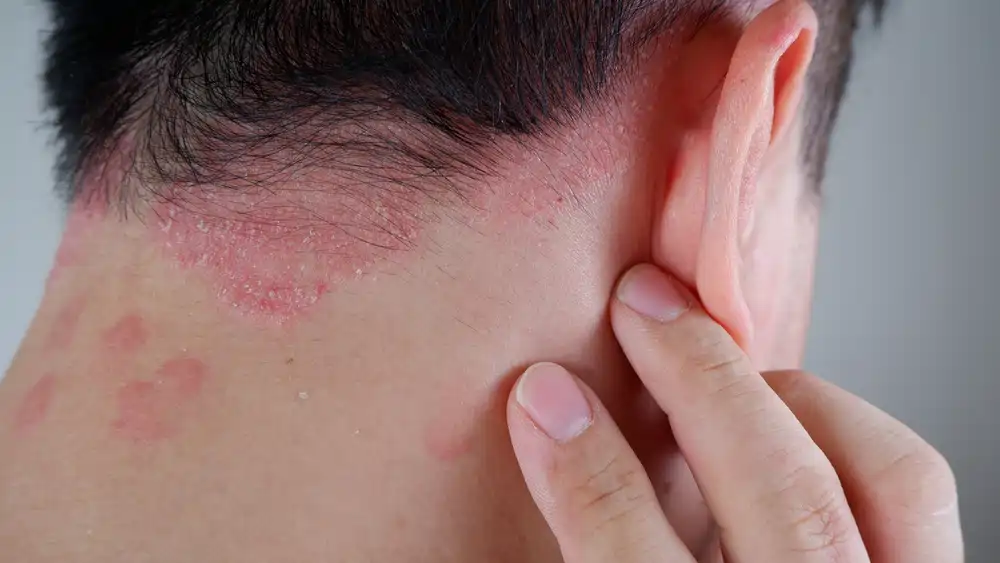Psoriasis

Psoriasis
What is Psoriasis?
Psoriasis is a chronic autoimmune skin disorder that causes the immune system to overreact, leading to a rapid buildup of skin cells. This results in thickened, inflamed patches of skin covered with silvery-white scales, commonly referred to as plaques. These plaques often appear on the elbows, knees, scalp, and lower back, but they can affect any part of the body.
What's Included
Dermatologist’s Perspective
- Immune Response: Psoriasis occurs due to an overactive immune system that mistakenly attacks healthy skin cells, triggering inflammation and rapid cell growth.
- Genetics: Family history plays a significant role, with many patients having relatives with similar conditions.
- Triggers: Flare-ups may be caused by stress, infections (like strep throat), cold weather, certain medications, skin trauma, smoking, and alcohol.
Types of Psoriasis
- Plaque Psoriasis (Psoriasis Vulgaris): The most common type, characterized by raised, red patches with silvery scales.
- Guttate Psoriasis: Small, drop-shaped spots; often triggered by infections.
- Inverse Psoriasis: Smooth, red lesions found in skin folds like the armpits or groin.
- Pustular Psoriasis: White pustules surrounded by red skin; can be localized or generalized.
- Erythrodermic Psoriasis: A severe, rare form involving widespread redness, scaling, and discomfort.
Diagnosis:
Dermatologists diagnose psoriasis based on the appearance of the skin and patient history. In rare or unclear cases, a skin biopsy may be needed to confirm the diagnosis.
Treatment Options
- Topical therapies: Corticosteroids, vitamin D analogs, salicylic acid, and coal tar.
- Phototherapy: Controlled exposure to UVB light in a clinical setting.
- Systemic medications: Oral treatments like methotrexate, cyclosporine, or retinoids for moderate to severe cases.
- Biologics: Injectable medications targeting specific immune pathways (e.g., TNF-alpha, IL-17, IL-23 inhibitors).
Important Notes
- Psoriasis is not contagious.
- It can be associated with psoriatic arthritis, which causes joint pain and stiffness.
- Long-term follow-up with a qualified dermatologist is essential for proper management and improved quality of life.
Medicine Use Disclaimer: Do not use any medication or topical treatment without consulting a certified dermatologist. Always follow a professional’s advice for your skin concerns.
